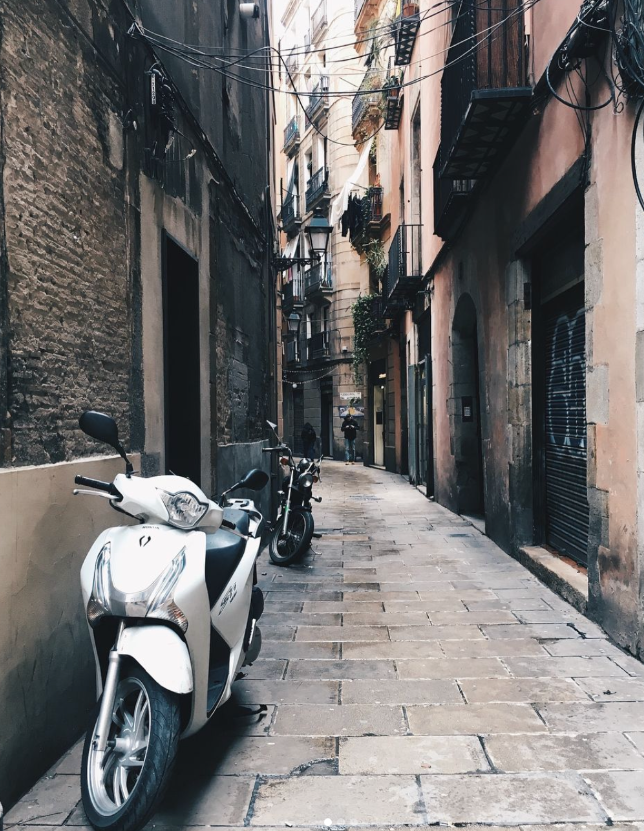Long-Distance Traveling Tips: How to Make Your Trip to Europe the Best Experience
Planning vacations can often be stressful, especially when you are traveling outside of the country. If you are traveling for the first time, certain preparation is necessary. You’ll be exposed to new languages, a foreign culture, and different laws, and regulations—it is better to be safe than sorry and aware of what’s waiting on the other side of the ocean. I have traveled to more than 15 countries and would like to share some tips on how to make long-distance trips smoother—specifically in Europe.
Look up how to leave the airport (taxi, bus, hotel shuttle, etc.)
No one wants to be stuck in an airport for longer than needed, especially after an exhausting flight. That’s why you should always check transpiration options in advance; whether it be a taxi, bus, train, or shuttle offered directly by the hotel. Taxi apps are typically more expensive than a shuttle or a city bus. Public transportation is very developed and easily operated in Europe, I would recommend using that option—and it shouldn’t be more than 10 € per person one way. A taxi can start from 30 € depending on the location and the country.
Grab some skincare for the plane to keep your face hydrated
We all know how much our skin suffers in dry and dusty environments such as airplanes. It is always a good idea to stock up on a hydrating mask, moisturizing mist, or eye patches to give the skin some relief. Moreover, when you arrive at the destination of your dreams, you will definitely want to be all ready for partying—and not worried about how tired you look.
Check Luggage weight and liquid allowance
European airports are very strict on carry-ons and the weight of the checked-in bags. You need to make sure it is not more than 50 pounds (23 kg) and not a pound more for the checked-in bag, otherwise, it can either not be allowed on the plane or the additional fee might be applied up to 100 €. There might be more luggage allowance for Business class travelers. Some airlines do not allow carry-on bags at all. As for the liquid allowance, you can put containers of up to 3.4 ounces (100 ml) each but not more than 1 liter in the carry-on.
Pack a first aid kit
There are different medications in different areas of the world, so you might not be able to purchase a familiar medicine in case of an emergency. It is better to have a first aid kit ready before you arrive at your destination; including stomach medicine since the body can react differently to unknown foods.
Pack comfortable shoes
Image taken by author
Forget about driving! It is such a pleasure to walk around Europe and explore places, so don’t forget to bring comfortable shoes. In a lot of European cities cars are not even allowed into the downtown areas. Unless you want to rent a car and travel throughout the country’s rural areas, trust me, you’ll be walking a lot!
Pickpocketing issue
Always be on the lookout for your belongings because pickpocketing in Europe is a common issue. In some cities, your wallet can be stolen right from under your nose as soon as you look away from it. For the same reason, don’t carry around too much cash, it is better to use a credit/debit card which can easily be blocked.
Plan your budget accordingly due to currency exchange
Keep in mind that Europeans use Euros and other currencies, thus, after you exchange your money, it might not be the same amount as you planned for. It is a good idea to keep track of the currency rates and plan accordingly.
Look up some ‘not too touristy’ restaurants and cafes in advance
A lot of times the most popular ‘touristy’ places are the least worth trying—and unreasonably expensive. Try not to dine in at the main squares, there are plenty of amazing hidden spots in different areas that are not so known amongst tourists. I would recommend following bloggers and influencers from the country you are visiting; it will give you a good insight from a local’s perspective.
Check the regulations on weekends and regional differences
In a lot of European countries, everything is limited or closed on Sundays. These limitations include grocery stores, restaurants, etc. Make sure you plan your arrival day or shopping trip on a day other than Sunday because otherwise, it will be some relaxation time at your hotel. In Germany, for example, there are 16 regions and each of them has different holidays when everything is closed.
Vacations are always super exciting, but it is imperative that you’re prepared for your travels. I hope that this article will help you to make sure everything is in order and your trip to Europe is unforgettable!
Do you like traveling abroad? What are your favorite destinations? Leave a comment below.







